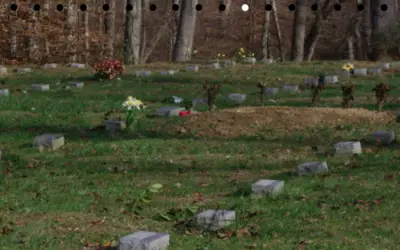What is embalming?
Embalming is a body preservation process done to delay natural body decay when one dies.
Can a Muslim body be embalmed?
In an ideal scenario, Muslim bodies should not be embalmed. Islamically, the body should be honored and purified after death (see Ghusl). The embalming process uses invasive procedures to remove the fluids from the body and replace it with chemicals and other impure substances. Embalming the body is contrary to how Islam tells us to honor the body and does not align with the general goal of expiditing the burial, where possible.
However, due to various laws embalming might be required by the state. For example, embalming is required when transporting the body across state or international lines. Some states require a body with certain infectious diseases to be embalmed. If the government requires you to embalm the body, then you should follow the law, but it should be avoided, when possible.
How is the embalming done?
The embalming process is a multifaceted procedure that can take around two hours to complete.
The process comprises several steps: body preparation, arterial, cavity, hypodermic, and surface embalming. In a nutshell, embalming involves the introduction of a disinfecting solution into the bloodstream.
Naturally, the bloodstream transports necessary nutrients for body nourishment. Similarly, the arterial system is used to reach every part of the body during the embalming process. Formaldehyde — embalming fluid is injected into the bloodstream after one dies, which is distributed all over the body to delay decomposition.
Some families prefer makeup applied to the deceased. Cosmetic application occurs during the embalming process. In some cases, the gel is applied before styling the hair. If the death occurred from severe disfiguring trauma, the embalmer might recommend reconstruction. Wax or plaster of Paris is used to reshape the damaged parts.
When do you have the body embalmed?
As mentioned earlier, embalming is used to preserve the body after death to delay the decomposition process. Many funerals take place several days or, in some cases, more than a week after the death, so many families decide to embalm the body. If you are having a pre-burial event such as a wake/viewing several days after the death, an embalmed body will be more likely to retain some living appearance qualities. However, it is essential to note that embalming is not required by law unless in certain exceptional cases.
Who embalms the body?
When a person dies, the embalmer performs necessary procedures on the body for burial. Embalmment is conducted in funeral homes by a state-licensed embalmer. The license requirements for embalmers vary by state.
How soon after death is a body embalmed?
Embalming should be done as soon as possible to prevent decay, especially for an open-casket viewing. However, it is recommended to be done no longer than 48 hours after death. Once the body has been released to the funeral services company, the family directs them to conduct embalming.
Note that each state requires the embalming process to be done within a certain period, mostly a week.
Embalming is also done when the body is to be transported for a long distance, for example, to another country for burial. There will be no need for the body to be embalmed in case of direct cremation.
How much does embalming cost?
The cost may include the actual embalming process and esthetic application service. The service cost can range from $200 to $1250. If the body is in good condition without injuries, the price will be towards the lower end of the range.
In the case of a traumatic body disfiguring due to an accident, reconstruction is necessary, which means a higher cost. The cost is also higher if an autopsy is performed due to extensive incisions that are part of the process.
Aesthetics are separately billed though they are part of the embalming process. This includes washing, dressing, cosmetic application, and positioning the body in the casket.
How long do the effects of the embalming last?
Embalming delays the decomposition process of a body that happens immediately after a person dies. If the body is not on view in an open casket, embalmed bodies should be refrigerated. The time it takes for an embalmed body to decompose fully depends on the environment. An unembalmed body may take eight to twelve years to decay to a skeleton, but an embalmed body will take longer than that.
How do the chemicals affect the body and ultimately ground?
As much as embalming solutions slow the decomposition process, the fluids affect the ground when the body is buried. Formaldehyde is one of the most hazardous chemicals that can seep into the ground and surrounding water ecosystem when an embalmed body decays.




